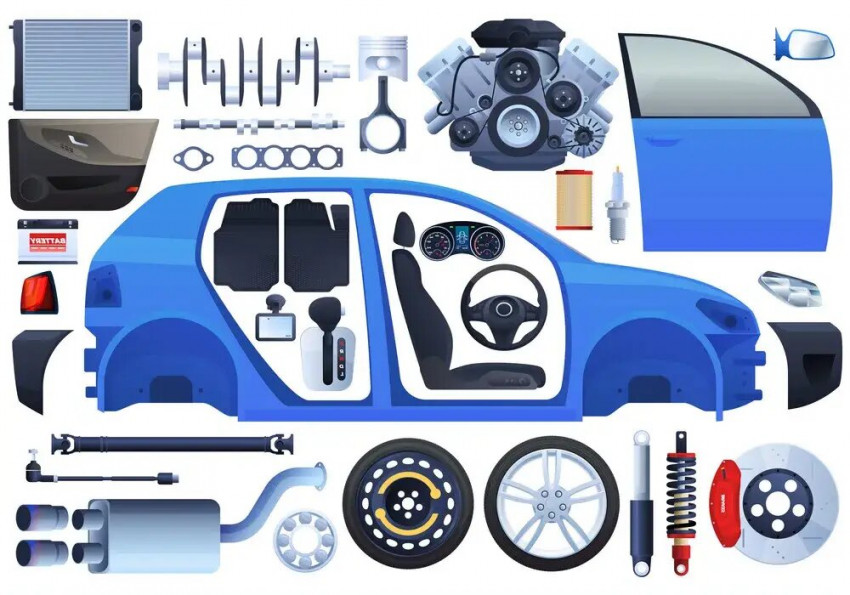
Since car tyres are important for the safety of your vehicle, the best way to determine when they need to be replaced is to take help from experts.
The answer to the questions of how often we should change tyres depends on a few things, including how often you drive, how you drive, what vehicle you have and what brand of tyres you put in.
It is important to understand the difference between tyre rotation and tyre replacement. Because the front tyres do more work than the rear tyres, especially on front-wheel drive cars, a tyre rotation alternates the front and rear tyres so that all tyres wear evenly. Therefore, tyre rotation should be done at least once a year, and some manufacturers recommend rotation every 10,000 kilometres.
Changing tyres is as simple as it sounds: replace all your tyres at the same time. We recommend changing all your tyres at once, as mixing old and new tyres can cause safety and balance issues
On the contrary, if you have a car that has finished its lifespan but still you can turn your end-life vehicle into cash with Scrap Cars Removal Sydney.
Change your vehicle's tyres
-If you spend most of your time commuting in and out of a metropolis, when should you change your vehicle tyres?
Although subway driving is usually slow, it involves a lot of starting, stopping, braking and turning. Slow speeds help tyres last longer, but the work done by the wheels and tyres can accelerate wear.
Have your tyres rotated by a professional at least once a year to avoid uneven wear on the front and rear tyres? Because city driving doesn't cover a lot of ground, we recommend replacing your tyres every five years or sooner if the tread has reached the tyre wear indicator in the tread pattern. Visit your local Tyre service shop for a free tyre safety check if you're not sure how to read your tyre wear indicator or want more peace of mind.
In short, replace your car tyre every five years or sooner and rotate it.
-If you spend most of your time driving on “highways”, when should you change your vehicle's tyres?
Although highway driving is better for your tyres, keep in mind that higher speeds cause more frictional wear, so if you frequently drive at speeds of 100km/h or more, you may want to replace your tyres sooner.
Highways are often better maintained, and the constant speeds, along with fewer turns and less chance of significant braking, help the tyres last longer than subway tyres. Some tyres, such as road tyres, can last up to ten years while increasing fuel economy and ride comfort. However, we still recommend having your tyres checked by a professional once a year, as a worn tyre at high speeds can be catastrophic.
In short, replace every 40,000 – 50,000 kilometres and rotate every year.
-If I only change tyres by brand, when should I change my vehicle's tyres?
When it comes to tyres, the end product tends to reflect its price. So it's more important to think about how much you paid for your tyres than what brand they are. The more expensive the tyre, the longer it will generally be. More expensive tyres also offer better handling, lower road noise and superior stopping power.
In short, the cheaper the tyre, the sooner it needs to be replaced.
-If I don't use my car that much, when should I change my vehicle's tyres?
Tyres also degrade when not in use, so just because you don't drive your car doesn't mean your tyres will last much longer.
After five years, the rubber compounds in a tyre begin to break down, so tyres have a production date printed on the sidewall. When deciding whether or not your tyres need to be replaced, consider the following:
Climate – If you live in an area with extreme temperatures or weather, the lifespan of your tyres may be a short thread. Because sunlight can shorten the life of your tyres, we recommend that you park your car in a garage or undercover area when not in use.
Maintenance – If a vehicle is not driven often or used for short trips, everything from brake pad wear to tyre pressure and auto fluids can be overlooked. Consider how regularly you check your tyres and tyre pressure. If it has been a long time, we recommend taking your vehicle to an expert.
In short, maximum every 3-5 years


